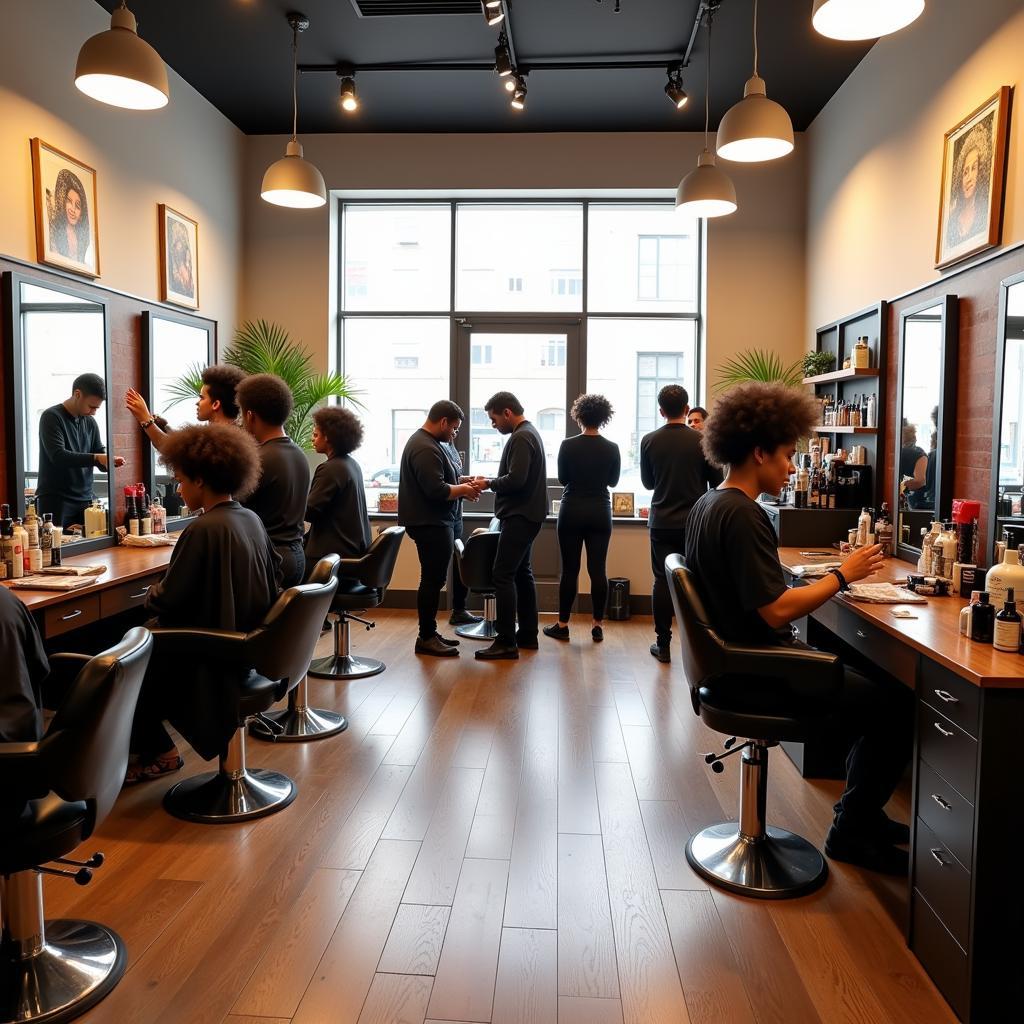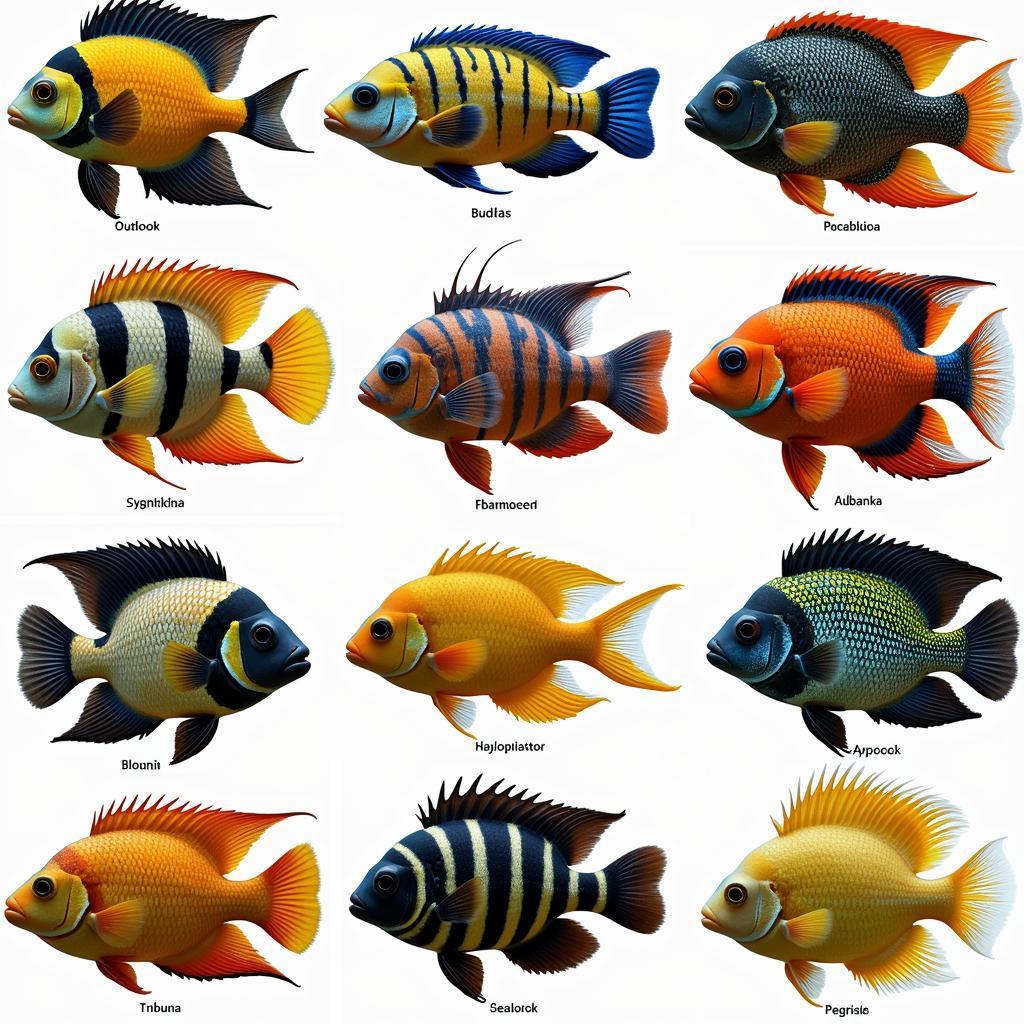Exploring the Rich Tapestry of African Cinema
African Cinema, a vibrant and diverse landscape of storytelling, reflects the continent’s rich history, cultures, and evolving identities. From the bustling streets of Lagos to the serene landscapes of the Serengeti, African filmmakers are capturing the essence of life on the continent and sharing it with the world. This article delves into the fascinating world of African cinema, exploring its history, key figures, emerging trends, and the challenges and triumphs it faces.
A Journey Through the History of African Cinema
The history of African cinema is as complex and multifaceted as the continent itself. Early filmmaking in Africa was largely dominated by colonial powers, often portraying stereotypical and exoticized narratives. However, the post-independence era saw a surge in filmmaking by African directors, eager to tell their own stories and reclaim their narratives. Pioneering filmmakers like Ousmane Sembène of Senegal, often considered the “father of African cinema,” paved the way for future generations with films like Black Girl (1966) and Xala (1975), which tackled social and political issues with powerful imagery and storytelling.
You can find some interesting African films on platforms like african cinema youtube.
The 1970s and 1980s witnessed the rise of several national cinemas, with countries like Burkina Faso, Mali, and Algeria becoming hubs for filmmaking. Film festivals like FESPACO (Pan-African Film and Television Festival of Ouagadougou) emerged, providing a platform for African filmmakers to showcase their work and connect with international audiences.
Key Figures and Movements in African Cinema
African cinema is not a monolithic entity. It encompasses a diverse range of styles, genres, and thematic concerns. From the gritty realism of Djibril Diop Mambéty’s Touki Bouki (1973) to the magical realism of Souleymane Cissé’s Yeelen (1987), African filmmakers have consistently pushed the boundaries of cinematic expression. The emergence of Nollywood, the Nigerian film industry, has further transformed the landscape of African cinema, producing a vast number of films that cater to a wide range of audiences.
The rise of female filmmakers has also brought new perspectives and voices to African cinema. Directors like Safi Faye, Fanta Régina Nacro, and Wanuri Kahiu are challenging traditional narratives and exploring themes of gender, identity, and social justice. Their work has garnered international acclaim and paved the way for future generations of female filmmakers.
Want to download some lighthearted films? Check out african comedy movies download.
Contemporary Trends and Challenges
African cinema continues to evolve in the 21st century, embracing new technologies and distribution platforms. The rise of digital filmmaking has democratized access to filmmaking tools, allowing more voices to be heard. Online platforms like YouTube and Netflix are also playing a crucial role in expanding the reach of African films to global audiences.
What are the current trends in African Cinema?
Current trends include a focus on contemporary issues, exploring themes of globalization, migration, and the challenges faced by young Africans in a rapidly changing world. There’s also a growing interest in genre filmmaking, with a rise in horror, science fiction, and fantasy films from the continent.
What are the main challenges facing African Cinema?
Despite its growth and increasing international recognition, African cinema still faces significant challenges. Funding remains a major obstacle for many filmmakers, limiting their ability to produce high-quality films. Distribution and exhibition networks are also underdeveloped in many parts of the continent, hindering access to African films for local audiences.
Conclusion: The Future of African Cinema
African cinema is a powerful force for cultural expression and social change. It reflects the continent’s dynamism, resilience, and its ongoing struggle for self-representation. As new generations of filmmakers emerge and new technologies transform the landscape of filmmaking, African cinema is poised to play an even greater role on the global stage. The future of African cinema is bright, promising a continued exploration of diverse narratives and cinematic innovation. It’s a testament to the enduring power of storytelling in Africa.
FAQ
-
What is Nollywood? Nollywood is the Nigerian film industry, one of the largest in the world in terms of film output.
-
Where can I watch African films? African films are becoming increasingly accessible through streaming platforms, film festivals, and specialized distributors.
-
Who are some prominent African filmmakers? Ousmane Sembène, Djibril Diop Mambéty, Souleymane Cissé, Safi Faye, and Wanuri Kahiu are just a few of the many talented filmmakers from Africa.
-
What are some key themes explored in African cinema? African cinema explores a wide range of themes, including colonialism, post-independence struggles, identity, gender, and social justice.
-
What is the significance of FESPACO? FESPACO is the Pan-African Film and Television Festival of Ouagadougou, a major platform for showcasing African cinema and promoting collaboration among filmmakers.
Situations where people might have questions about African Cinema
- Students researching African culture and history
- Film enthusiasts looking for diverse cinematic experiences
- Filmmakers seeking inspiration and collaboration opportunities
- Educators developing curriculum on African studies
- Individuals interested in learning more about the continent
Other related articles and questions
- The impact of colonialism on African filmmaking
- The role of women in African cinema
- The future of Nollywood
- The rise of digital filmmaking in Africa
- African cinema’s representation on the global stage.
Looking for something different? Check out 4south african sex bomb in a delicious casting. This article provides… (avoid explicit content).
Need something specific? You can try searching for african full movie porn or african american xxx movies. (Please be aware of adult content warnings).
When you need assistance, please contact us at Phone Number: +255768904061, Email: kaka.mag@gmail.com Or visit us at: Mbarali DC Mawindi, Kangaga, Tanzania. Our customer service team is available 24/7.

